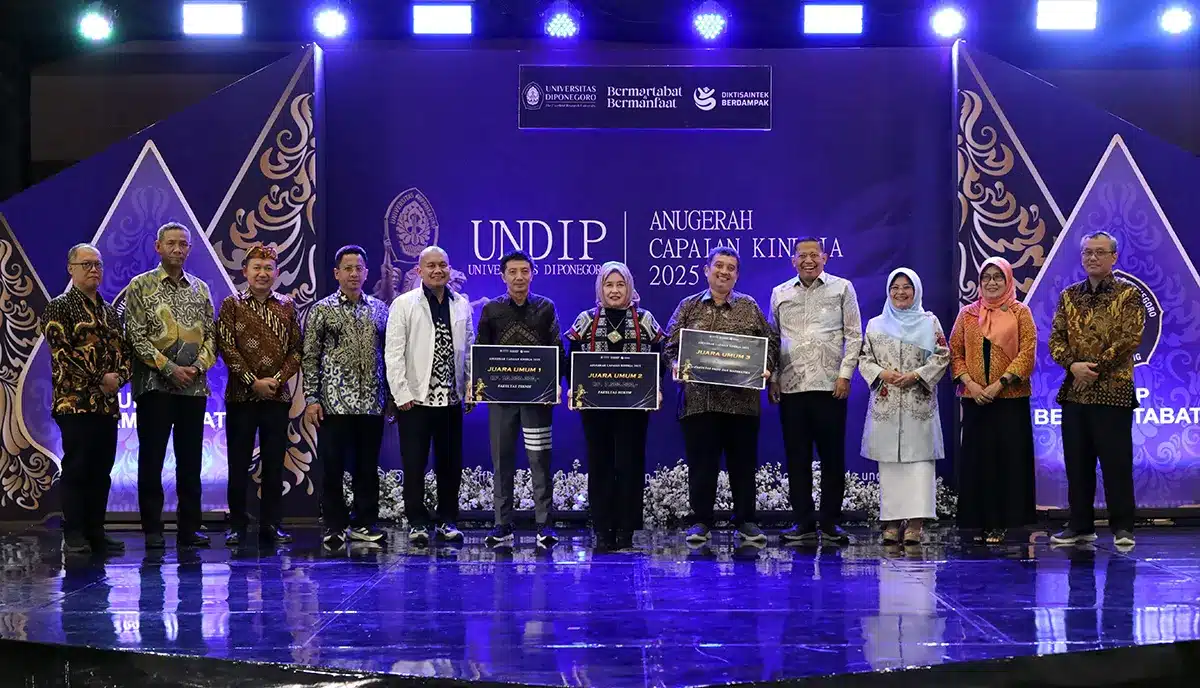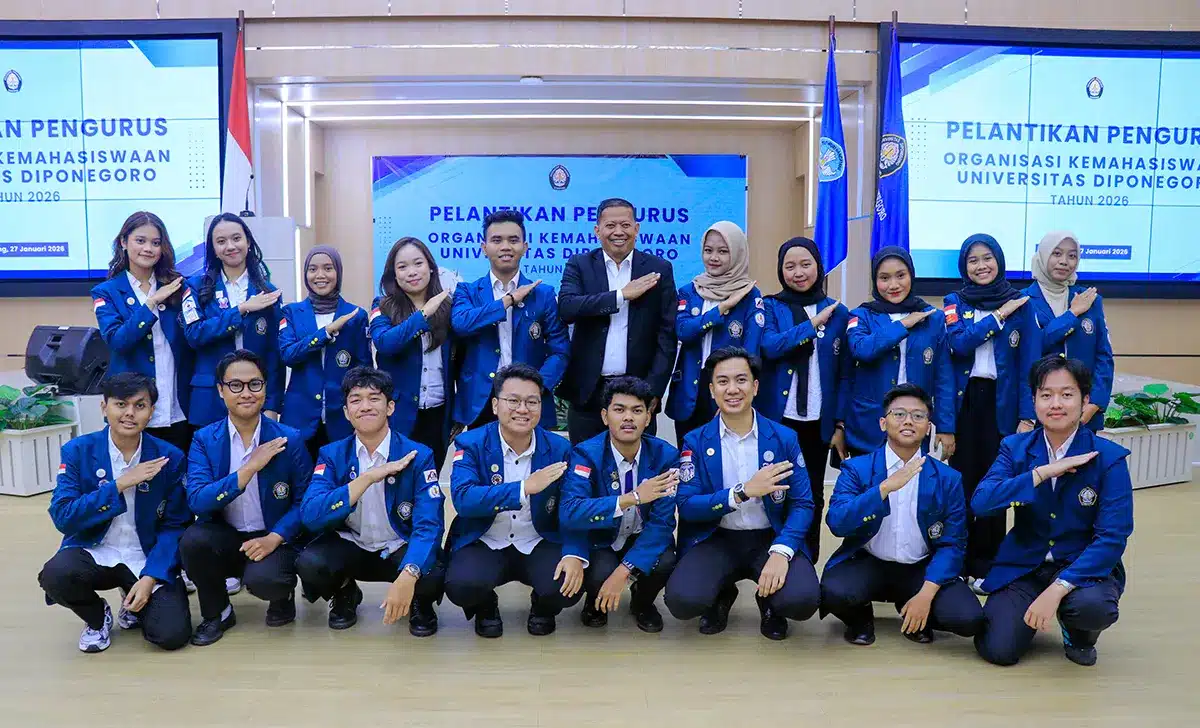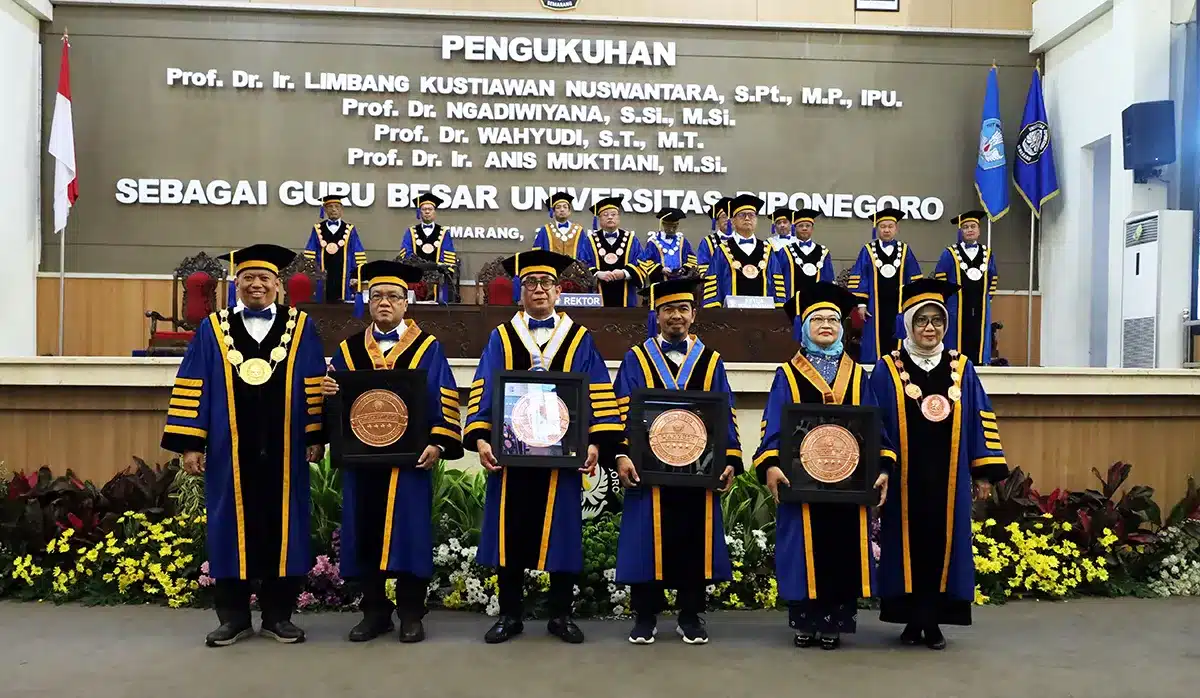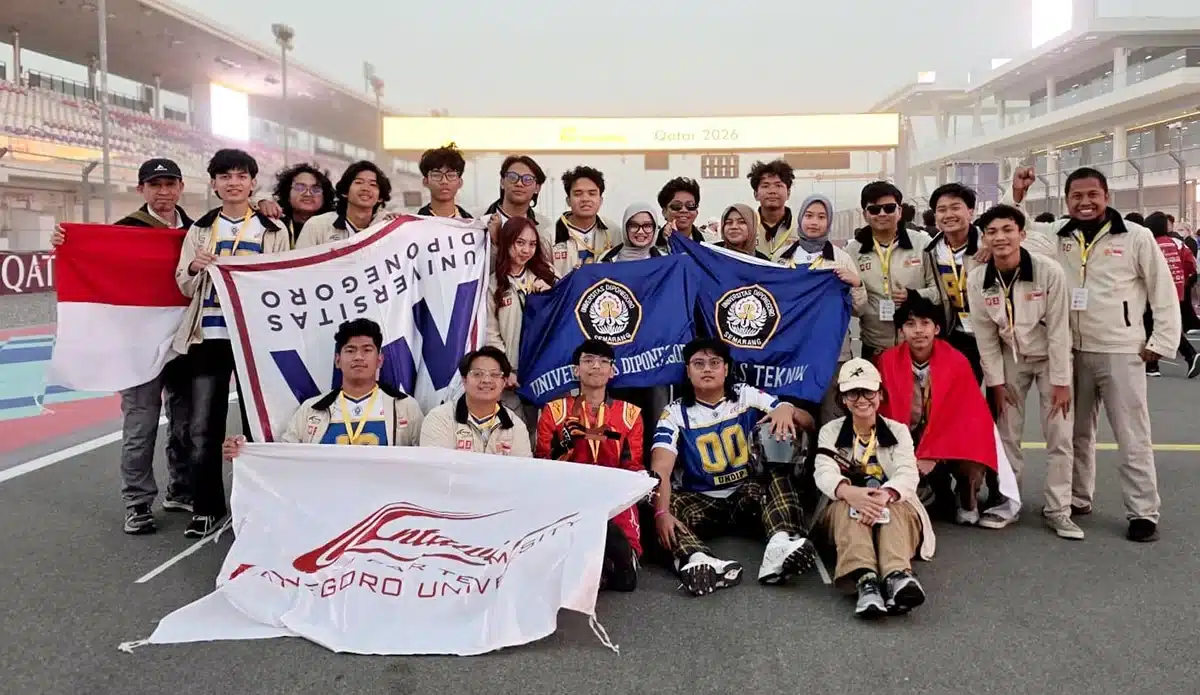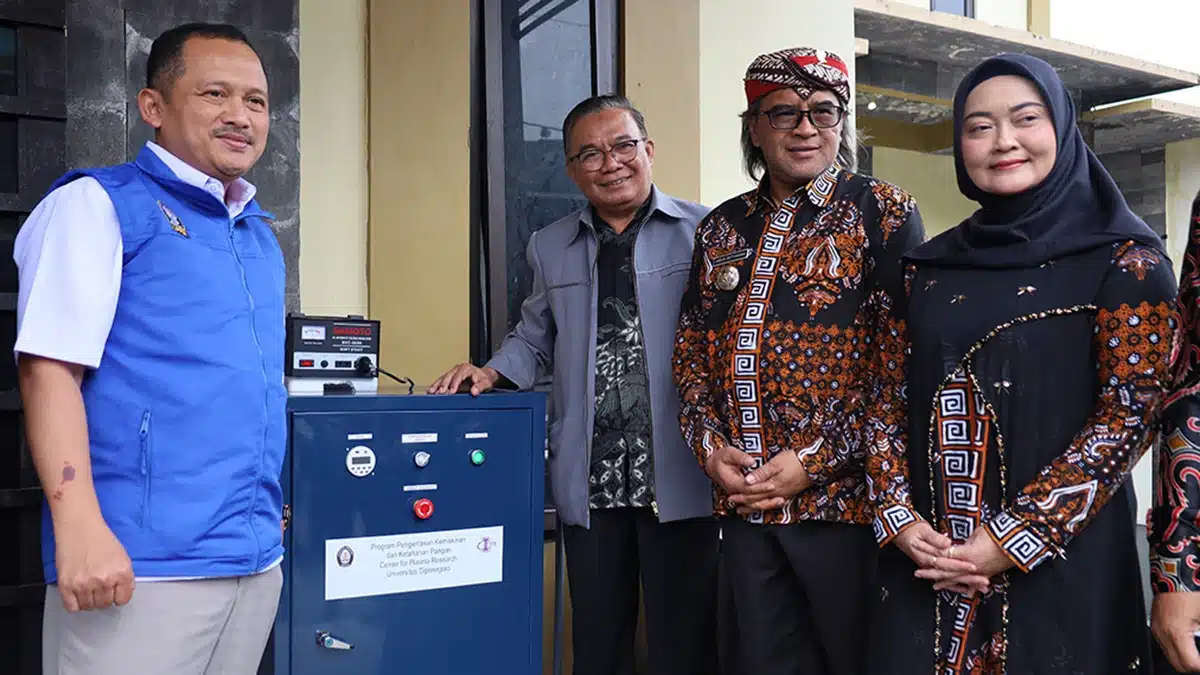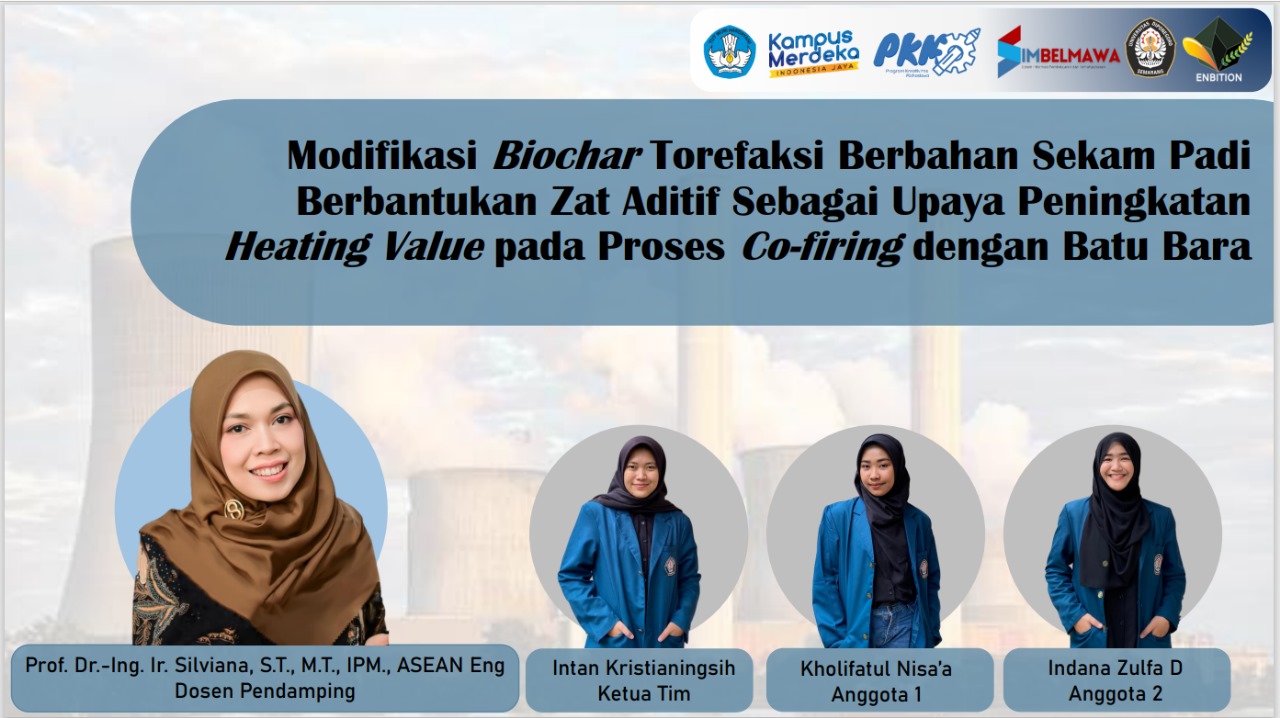Indonesia is one of the countries with a high dependency on coal as the primary energy source for electricity generation. According to the Energy Institute (2023), coal has contributed about 50% of Indonesia’s total energy mix, with consumption increasing annually. This dependency has the potential to produce carbon dioxide emissions that negatively impact the environment.
Concerns about excessive coal consumption have become a significant issue addressed by the Student Creativity Program Team for Exact Research (Tim Program Kreativitas Mahasiswa Riset Eksakta / PKM RE) from the Chemical Engineering Department, Faculty of Engineering, UNDIP.
The team, consisting of Intan Kristianingsih, Kholifatul Aliyahtun Nisa’a, and Indana Zulfa D, under the guidance of Prof. Dr-Ing. Ir. Silviana, S.T., M.T., IPM, ASEAN Eng., developed a way to reduce coal usage by creating environmentally friendly biomass through the co-firing process.
Biomass co-firing is the process of mixing biomass with coal to be used as fuel in power plants. This process offers several advantages: first, co-firing can significantly reduce carbon dioxide emissions because biomass is considered a carbon-neutral energy source. Second, this method allows for the utilization of waste, such as agricultural waste, as a valuable energy source.
The PKM RE team then initiated the use of rice husk waste as a biomass substitute for coal. Rice husk waste was chosen because it has a relatively high calorific value, 17.43 MJ/kg. To increase its calorific value to be equivalent to coal, additives were added through the torrefaction method.
“To increase the calorific value of rice husks, we perform pre-treatment using the torrefaction method, which involves heating biomass at relatively low temperatures in low-oxygen conditions. As a result, the calorific value of rice husk waste, which was initially lower than coal, can increase to almost match coal,” explained Intan, one of the team members.
By adding additives such as glycerol, sunflower seed oil, and used cooking oil, the PKM RE Team from the Chemical Engineering Department, UNDIP, successfully modified rice husk waste biochar into biochar with combustion results comparable to coal. This method is expected to become an effective and sustainable solution for a cleaner and more environmentally friendly future energy in Indonesia, reducing the country’s dependence on coal and increasing the use of renewable energy.


